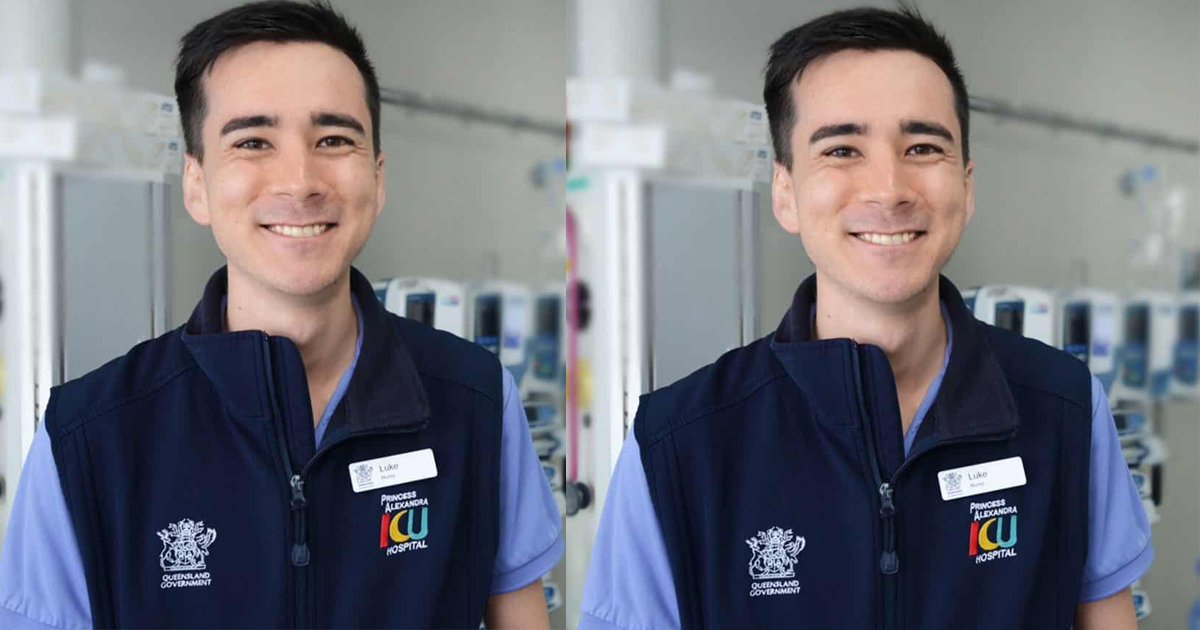
Only 11% of the current nursing workforce in Australia is male. Considering there are more than 250,000 registered nurses working nationally, it’s a glaringly small proportion.
According to leading male nurse, Luke Yokota, the culturally ingrained stigma surrounding men entering the industry is a huge barrier. Luke works tirelessly to break down stereotypes associated with nursing and has challenged gender roles to highlight the impactful and vital work nurses do every day.
“I never thought I’d be a nurse. There were very few role models to look up to, and it just wasn’t something guys spoke about,” said Luke, explaining his initial journey into the industry.
“It first sparked my interest when I was in Year 12 talking to friends who had mentioned their admiration for nurses and what they did. I did quite well in my OP, and I distinctly remember swapping my first preference from engineering to nursing. Nursing is perceived as a career path that’s not hard to get into and that requires less skill than a doctor, which breeds stigma. People questioned whether I was wasting my mark.”
Luke’s passion for nursing and helping others, as well as the plethora of support available, was the drive that helped him make the most of the opportunities on offer during his time at Griffith University. He didn’t let stereotypes get in the way of his journey, which has ultimately bred immense success – on top of working as a full-time nurse, Luke is also the head of the Men in Nursing Working Party and received a Young Australian of the Year nomination for his efforts.
“Griffith’s extracurricular programs were integral to my career development. I took part in a student exchange program where we went to Taiwan to look at how different healthcare systems worked. It was so interesting,” said Luke.
“I was also the undergrad student rep for nursing, in which we’d have meetings with staff, and talk about issues that were impacting the greater nursing faculty. Being able to discuss issues and come up with strategies to tackle the societal stigma while at uni really set me up for the work I do with the Men in Nursing Working Party. It cultivated a community and a sense of acceptance early on.”
The Men in Nursing Working Party is a national body that aims to promote men in nursing, challenge stigmas around men in the profession and showcase that it’s okay for men to care and work in nurturing roles.
“We’ve also recently released a Men In Nursing ebook and have appeared on ABC National Radio, ABC 730 Report and more to talk about our work,” said Luke. The book is a collection of stories from a variety of male nurses throughout the industry, presenting a raw depiction of what it’s like to work in these roles.
Although society’s views towards male nurses have slowly progressed, Luke still believes we’ve got a long way to go in terms of complete acceptance.
“Our views around male nurses have come a long way since the 60s or 70s. Back then in nursing, most men were in psychiatric units, because they were perceived as being the ones who were able to handle the erratic and often tense moments.”
For Luke, it’s the continued ability to make an impact on people’s lives every day that continues to drive him to foster change within the industry.
“I love how much you can help people and their families – you make such an impact every single day,” explained Luke.
“If you asked new graduate Luke if he’d be appearing on national television, radio and being nominated for Young Australian of the Year in a few years, I would’ve laughed at you. It just shows that if you follow your passions and let it drive what you stand for while working hard, the opportunities open themselves up for you.”
If Luke’s career journey has inspired you to break down stigma and change lives in the process, suss out how Griffith University can help.



